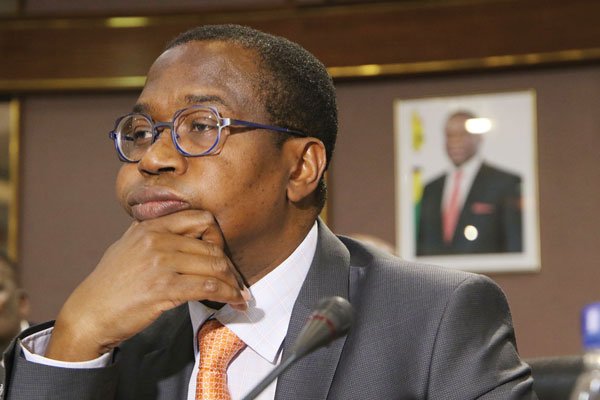
Independent|FINANCE minister Mthuli Ncube faces a daunting task of devising a cocktail of fiscal measures to stabilise the rapidly imploding economy when he presents the 2020 national budget this afternoon amid widespread pessimism.
The budget presentation comes at a time Zimbabwe is in the throes of a deepening economic crisis characterised by a debilitating liquidity crunch, an acute foreign currency shortage, low capacity utilisation estimated to be less than 30%, power outages lasting up to 18 hours and runaway inflation estimated at 353% (year-on-year).
Ncube will present his 2020 budget with little to show from last year’s budget. Some analysts say his 2019 budget proposals are virtually dead in the water.
Among the highlights of the 2019 US$8,2 billion budget was a Gross Domestic Product (GDP) annual growth projection of 3,1%, the privatisation of five parastatals to generate US$350 million, 5% salary cuts for senior government officials with the declaration that the multi-currency regime remains in place.
However, a year later, the reality on the ground depicts a totally different picture to what had been envisaged by Ncube in his fiscal statement last year.
The devastating impact of the power cuts, which last up to 18 hours daily, the drought and the catastrophic Cyclone Idai in the eastern parts of the country, among other challenges, have rendered government’s 3,1% growth projection way off the mark.
The International Monetary Fund has projected that the economy will instead contract by 7,2% this year.
The multi-currency regime has since been banned through Statutory Instrument 142 of 2019 issued on June 24 this year, making the Zimbabwean dollar the sole legal tender.
He presents a budget at a time the local currency has been severely weakened against the United States dollar, resulting in runaway inflation that has eroded incomes to the extent that civil servants have warned that it will not be business as usual as they are incapacitated.
Doctors have withdrawn their labour since last month, saying they cannot cannot continue to work because of poor wages. Their colleagues in the civil service rejected a 60% increment they say has since been eroded by inflation.
The ravaging effect of inflation makes a mockery of the tax-free threshold of ZW$700 introduced by Ncube in his mid-term fiscal budget earlier this year. He will present the budget looking to come up with a package to placate a restive civil service, including striking doctors.
He will present the budget amid calls by the business sector to remove the 2% tax on electronic transactions, which was introduced on October 1, 2018, as they argue that it is punitive and counter productive.
In his 2020 budget paper, Ncube speaks of the 2020 budget enhancing revenue collection through advancing the ongoing Zimbabwe Revenue Authority and other administrative reform initiatives on broadening the tax base and closing revenue leakages.
He has projected a growth rate of 4,6% based on an improved rainfall season to enhance agricultural production and electricity generation, improved foreign currency availability and recovery in aggregate demand among other factors.
He projects nominal GDP of ZW$209,3 billion in 2020, revenues at ZW$24,8 billion and expenditures at ZW$28,5 billion. However, economist John Robertson said the 2020 budget is likely to be much ado about nothing.
“I expect a lot of waffle that adds up to promises that again will not be kept and the government ends up looking for someone to blame,” Robertson said. “The best we can hope for is a stable exchange rate, but there is not much to show that will happen.”
He projected the GDP growth rate to contract substantially due to the rolling power cuts and the drought.The budget, Robertson said, would be hindered by political decisions that are contrary to what needs to be addressed to resuscitate the economy.
He pointed out that lack of reforms will render most proposals in the budget futile.“I do not think there is nothing to look forward to. I just hope next year will not be worse. They are always talking about reforms but I cannot see any evidence of it,” Robertson said.
Business consultant Simon Kayereka said the Treasury boss should address a number of issues among them the 2% tax on electronic transactions and money supply.
“Issues that should be addressed include removing the 2% tax, which is punitive. He should reduce money supply which is stoking inflation, as well as putting measures to ensure currency stabilisation,” he said.



